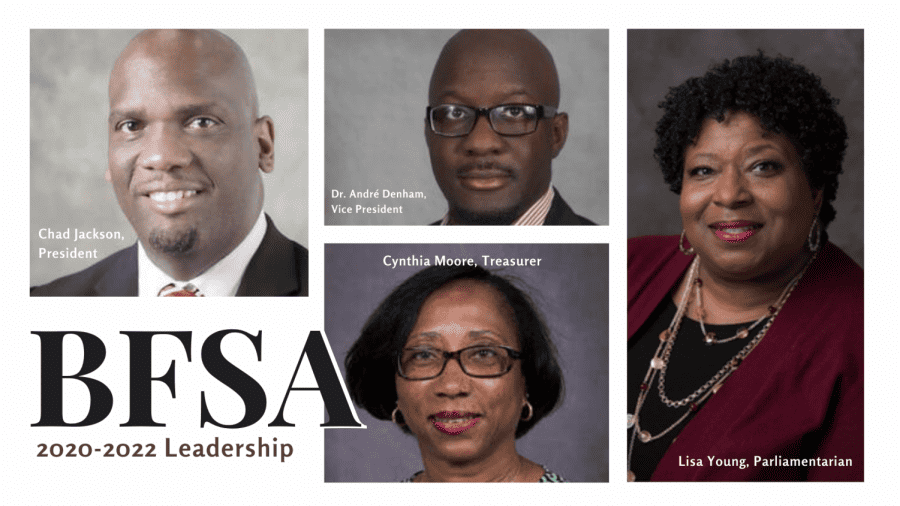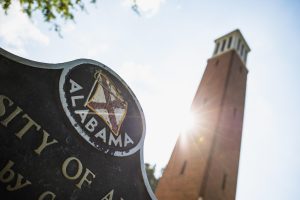BFSA finds the positives in virtual programming
September 30, 2020
Since the end of March, this pandemic has provoked changes in people’s professional and personal lives, and the UA Black Faculty and Staff Association (BFSA) was no exception.
While making individual preparations for a new semester, the newly-elected BFSA executive board came together on June 1 and quickly worked to find their footing and create intentional programming during a time of national turmoil.
Lisa Young, BFSA’s parliamentarian and an instructor, prior learning coordinator and academic advisor, said the transition to a virtual platform was tedious but successful. Still, she said, people “miss the in-person interaction.”
Chad Jackson, BFSA’s president and the diversity, equity and inclusion council chair for the College of Continuing Studies, said BFSA initially anticipated returning to campus earlier than they did. Through the help of its programming committee, BFSA was able to increase its visibility on campus through social media.
“To see that we had buy-in from the campus and the community partners has been the most exciting thing for me,” Jackson said. “People who may not have known who we were and what we did now have more access to that platform and access to that information.”
Though COVID-19 has stopped organizations from connecting in typical ways, BFSA has found a way to turn this negative into a positive.
“COVID allowed us to embrace every bit of technology that we had at our disposal to make sure that we were bringing quality programming virtually,” Jackson said.
Though the events are virtual, Young said she has still connected with people through meaningful conversations.
In addition to regular monthly meetings, BFSA has hosted several virtual events featuring conversation about systemic racism, COVID-19’s impact on mental health and being Black in academia.
Cynthia Moore, BFSA’s treasurer and the assistant director for the rural health scholars program, said communication should be encouraged during times like this.
“I think sometimes we try to hold things in and work things out ourselves,” she said. “But I’ve found if you just communicate with other people sometimes you can just work through the problem easier than you can by yourself.”
Jackson said that in today’s social climate, with COVID-19 alongside social and racial unrest, BFSA wants to be intentional with their conversations while they have “the microphone.”
“BFSA is committed to fighting for equity, advocating for social justice and speaking out against racial violence in the city of Tuscaloosa, the state of Alabama and our nation,” BFSA wrote in a June statement responding to the killings of George Floyd, Breonna Taylor and Ahmaud Arbery.
In regard to change being enacted on UA campus, Jackson said they have reaffirmed their partnership with the University and President Stuart Bell. BFSA has served as the voice for not only faculty and staff, but also students because “after the conversations, there comes change.”
Currently, BFSA showcases its support for students internally with the student ambassadors, the Black Scholars program and the Nyansapo Kente robing ceremony.
“This whole University… exists to help students,” said Andre Denham, BFSA’s vice president and assistant professor of education technology. “And for African American students, Black students, on a predominantly white campus, they definitely are going to need help to navigate this space.”
To learn more about BFSA and keep up to date with their upcoming events, check out their website: http://bfsa.ua.edu/.





















